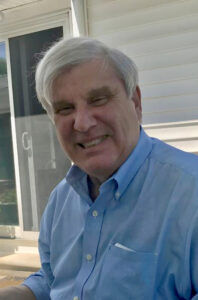Forgiveness stories show what we can be
“Holding on to anger, resentment, and hurt only give you tense muscles, a headache, and a sore jaw from clenching your teeth. Forgiveness gives you back the laughter and the lightness in your life.” — Joan Lunden
My mother raised me as a Christian, but I think I’d become one, regardless, after reading Luke 23.
There, we find Jesus on the cross, betrayed and persecuted and tortured and dying, and Jesus looks heavenward and says, “Forgive them, Father, for they know not what they do.”
The humility! The God of Heaven and Earth, deserving of all praise and capable of all power, hangs humiliated and dying on the cross. But, rather than asking God to send down hellfire and exact revenge, he asks God to forgive them.
That’s the scene that always came to mind back when people used to wear those What Would Jesus Do bracelets. That’s the Christ I want to more closely emulate.
I’m rarely successful.
I’m not strong enough.
But others are.
In this world of craven political, cultural, racial, generational, economic, and geographic divide, with brothers and sisters and parents and children no longer speaking to one another because of conflicting beliefs, I’m always on the hunt for stories of forgiveness.
I thirst for such stories, hoping for some clue to explain what makes others so capable of what I struggle so mightily to do.
This week, two stories come to mind:
First, a reader shared with me an Associated Press story out of Frederick, Maryland, near the scene of a Civil War battle that killed 23,000 people, America’s bloodiest day.
There, a 73-year-old progressive and a 59-year-old, QAnon-flirting conservative make intentional strides to live with their distaste for one another’s politics and find a way to respect one another (read the full story here: https://tinyurl.com/4uvbmndv). A reporter was present when the two sparred briefly over claims of November election-rigging and still told each other they loved each other when they parted ways.
Later, I came across a story from NPR (https://tinyurl.com/3saw5pm2) about a father in southern California who forgave and befriended his son’s killer.
“After our first meeting, my stride was much bouncier leaving the prison than the one I’d walked in with,” the father told his son’s killer. “It was a gift, and I honor you for doing that.”
Not only does the father forgive his son’s killer, but he thanks the killer for letting him forgive him, as though forgiveness is a gift to the forgiver, not the forgiven.
Which it is, I suppose. That’s what all the proverbs tell us.
But it’s so hard to feel that way.
We hold onto resentment because we don’t want to give them the satisfaction of being forgiven.
We hold onto our anger toward those with different politics because we feel like anything else concedes their positions.
I am often guilty of both of those things.
So I devour stories like those out of Maryland and California, wondering about the characters. Were they trained in the seminary? Part of some devout orthodox religion? Did a traumatic injury permanently damage the part of their brain where resentment is stored?
In Maryland, the progressive is a retired statistician raised by a Jehovah’s Witness and an atheist. The conservative is a paralegal investigator for a government contractor who feels guided by God in her pursuit of what she thinks is the truth and her friend, the progressive, calls conspiracy theories.
In California, the father was raised Sufi, a tradition of Islam, and runs a foundation dedicated to “restorative justice” that he founded with the father of the man who killed his son. His son’s killer works at that foundation, now.
There’s religion there, but none of those people are trained priests who dedicated their life to theology. None are monks studied in peacemaking. None are trained diplomats or anything else that might make them strong enough to give that final heave to clear resentment from their heart.
They, like the cast of characters in so many similar stories I’ve read, are just men and women who’ve truly realized a heart of forgiveness and love is a gift not just to those forgiven and loved, but to those who do the forgiving.
“I always felt forgiveness is something you give to yourself,” the California father told the man who killed his son.
And that fills me with both woe and wonder. Woe because those stories show there’s no reason I could not have a similar heart. Wonder because those stories show I am — and you are — entirely capable of getting there.
Justin A. Hinkley can be reached at 989-354-3112 or jhinkley@thealpenanews.com. Follow him on Twitter @JustinHinkley.





